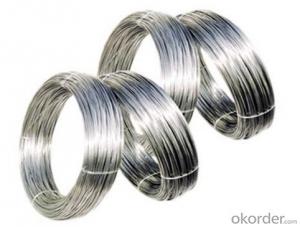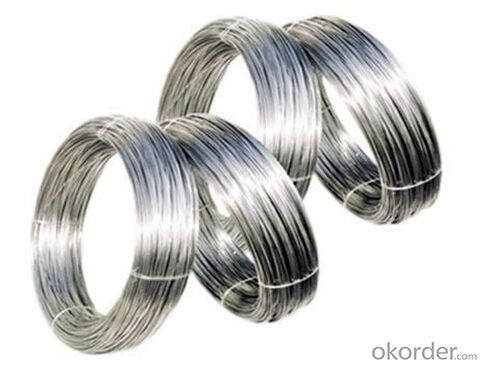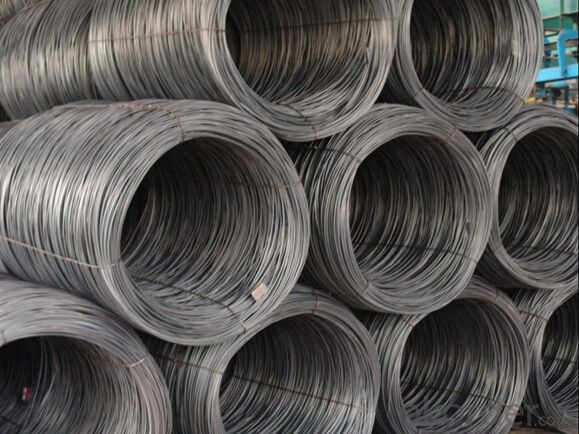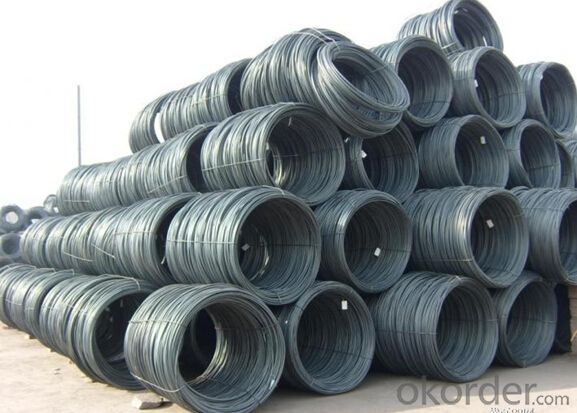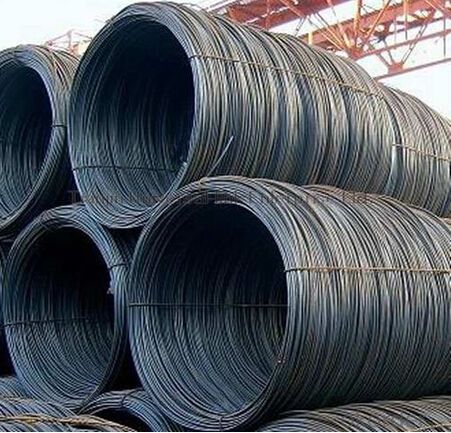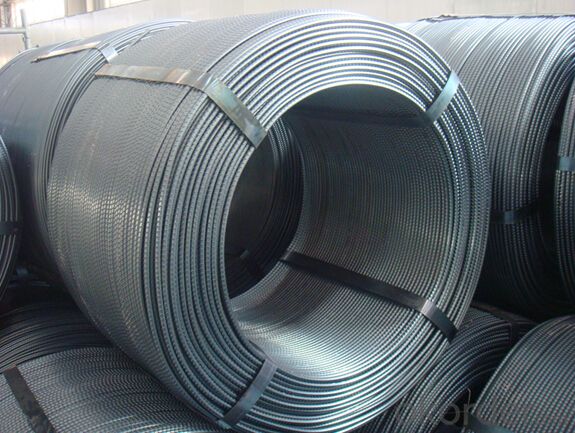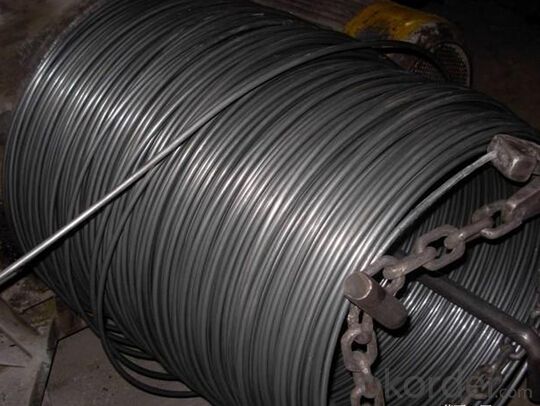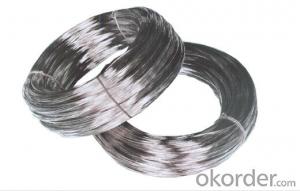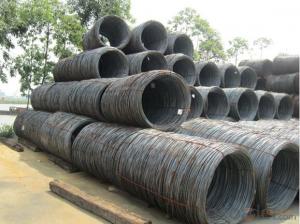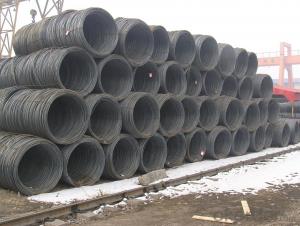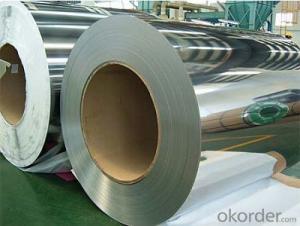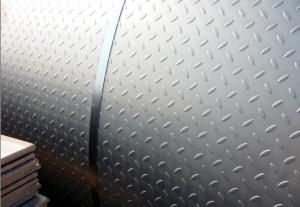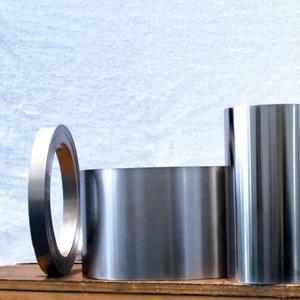Hot-rolled SUS 316 stainless steel wire rod in Coils
- Loading Port:
- Tianjin
- Payment Terms:
- TT OR LC
- Min Order Qty:
- 1 m.t.
- Supply Capability:
- 10000 m.t./month
OKorder Service Pledge
Quality Product, Order Online Tracking, Timely Delivery
OKorder Financial Service
Credit Rating, Credit Services, Credit Purchasing
You Might Also Like
Specification
Type:
Carbon Steel,Spring Steel,Bearing Steel,Gear Steel,Deformed Steel,Stainless Steel,Alloy Steel
Shape:
Steel Coil,Steel Sheet,Steel Wire Rod,Steel Flat Bar,Steel Square Bar,Steel Angle,Steel Round Bar,Steel Billets
Technique:
Hot Rolled,Cold Rolled,Cold Drawn,ERW,Forged,Saw,Extruded,EFW,Spring
Surface Treatment:
Galvanized,Coated,Copper Coated,Color Coated,Oiled,Dry,Chromed Passivation,Polished,Bright,Black,PVDF Coated
Certification:
ISO,SGS,BV,IBR,RoHS,CE,API,BSI,UL
Thickness:
5.5-18mm
Width:
5.5-18mm
Length:
In coils
Outer Diameter:
5.5-18mm
Net Weight:
2m.t.
Packaging:
Seaworthy packaging
Hot-rolled SUS 316 stainless steel wire rod in Coils
Detailed Information of the Hot-rolled SUS 316 stainless steel wire rod in Coils
| Name | Hot Rolled High Carbon Wire Rod |
| Shape | Round Bar/Square Bar/Flat Bar/Plate/Wire |
| Standard | GB/ASTM/SAE/AISI/DIN/JIS/EN/BS |
| Surface Treatment: | Black/Peeling/Polished/Machined |
| Delivery Condition: | Hot Rolled or Forged/Peeled or Black Surface |
| Test | SGS/UT 100% Elements Testing |
| Certificate: | ISO/Mill Certificate |
| Service: | 24 hours online service / |
| more than 20 years trading and manufacture | |
| Quality Assurance: | the third party inspection, such as SGS, BV, TUV…etc. is acceptable |
| Packaging Details: | Seaworthy Packaging or as per customer's packing instruction |
Chemical Composition of the Hot-rolled SUS 316 stainless steel wire rod in Coils
| Material | C %(≤) | Mn % (≤) | P % (≤) | S % (≤) | Si % (≤) | Cr% (≤) |
| 430 | 0.08 | 1 | 0.04 | 0.03 | 1 | 16.00-18.00 |
Company Introduction of the Hot-rolled SUS 316 stainless steel wire rod in Coils
CNBM International Corporation is the most import and export platform of CNBM group(China National Building Material Group Corporation) ,which is a state-owned enterprise, ranked in 270th of Fortune Global 500 in 2015.
With its advantages, CNBM International are mainly concentrate on Cement, Glass, Iron and Steel, Ceramics industries and devotes herself for supplying high quality series of refractories as well as technical consultancies and logistics solution.
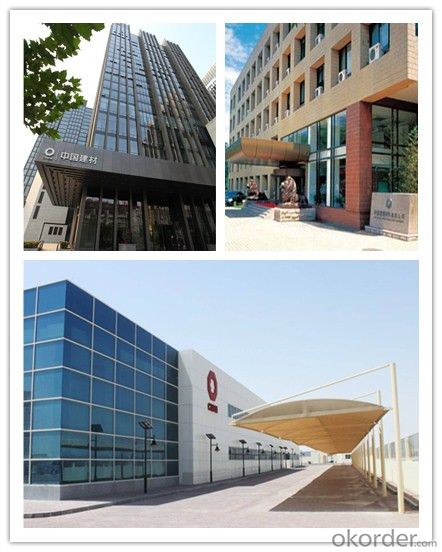
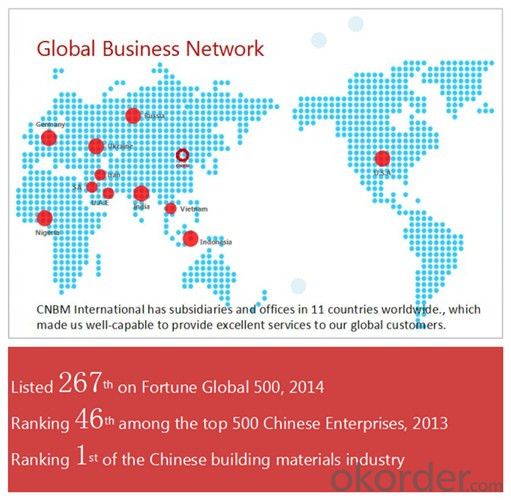
| After-sale service | CNBM provides the services and support you need for every step of our cooperation. We’re the business partners you can trust; you can relax and get on with doing business. |
| For any problem, please kindly contact us at any your convenient time, we’ll reply you in our first priority within 24 hours | |
| Advantages | Industry experience over 20 years. |
| Shipment of goods -More than 70 countries worldwide. | |
| The most convenient transport and prompt delivery. | |
| Competitive price with best service. | |
| High technical production line with top quality products. | |
| High reputation based on best quality products. |
Packaging & Delivery of the Hot-rolled SUS 316 stainless steel wire rod in Coils
| Packaging Detail | Sea worthy packing /as per customer's packing instruction |
| Delivery Detail | 15 ~ 40 days after receiving the deposit |
Products Show
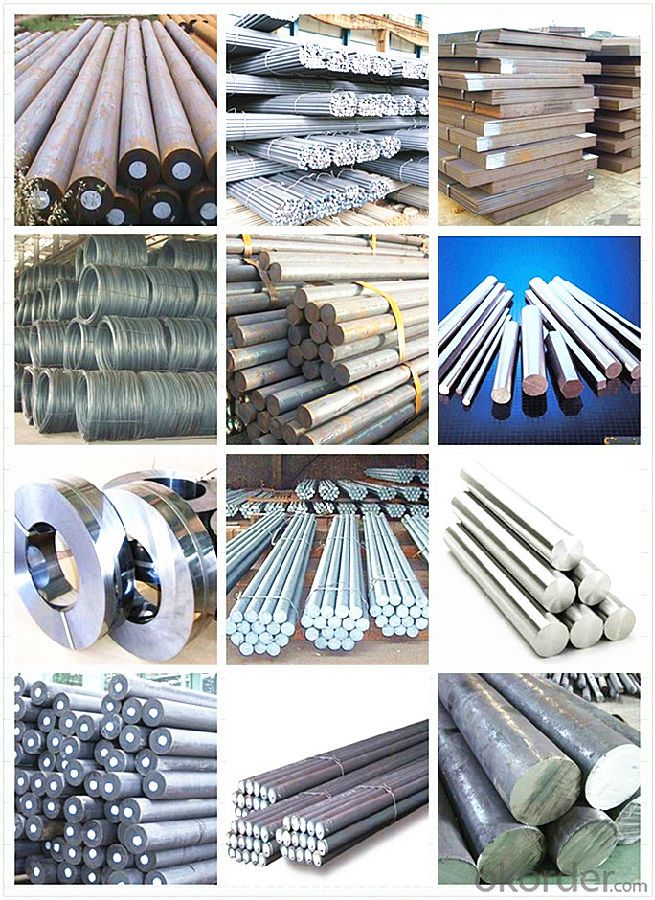
FAQ:
| Are you a trader or manufacturer? | Manufacturer |
| What’s the MOQ? | 3 metric ton |
| What’s your delivery time? | 15-35 days after downpayment received |
| Do you Accept OEM service? | Yes |
| what’s your delivery terms? | FOB/CFR/CIF |
| What's the Payment Terms? | 30% as deposit,70% before shipment by T/T |
| Western Union acceptable for small amount. | |
| L/C acceptable for large amount. | |
| Scrow ,Paybal,Alipay are also ok | |
| Why choose us? | Chose happens because of quality, then price, We can give you both. |
| Additionally, we can also offer professional products inquiry, products knowledge train (for agents), smooth goods delivery, excellent customer solution proposals. | |
| What's your available port of Shipment? | Main Port, China |
| What’s your featured services? | Our service formula: good quality+ good price+ good service=customer's trust |
| Where are your Market? | Covering more than 160 countries in the world |
- Q: How is wear-resistant alloy steel used in the production of mining equipment?
- Wear-resistant alloy steel is commonly used in the production of mining equipment due to its exceptional durability and resistance to abrasion and impact. It is utilized in components such as crusher liners, grinding media, buckets, and drill bits to withstand the harsh conditions of mining operations, where rocks, ores, and minerals can cause significant wear and tear. By using wear-resistant alloy steel, mining equipment can operate for longer periods without the need for frequent replacements, resulting in improved productivity and reduced maintenance costs.
- Q: Can special steel be used for making mining equipment?
- Yes, special steel can be used for making mining equipment. Special steel, such as high-strength and wear-resistant alloys, is commonly utilized in the manufacturing of mining equipment due to its durability and ability to withstand harsh mining conditions. It offers superior resistance to abrasion, impact, and corrosion, making it suitable for applications like excavators, drill bits, crushers, and other machinery used in the mining industry.
- Q: How does the composition of special steel affect its mechanical properties?
- The composition of special steel significantly affects its mechanical properties. Various alloying elements such as carbon, manganese, chromium, nickel, and others are added in specific quantities to enhance the steel's strength, hardness, toughness, and corrosion resistance. The presence and ratio of these elements determine the steel's microstructure, which in turn determines its mechanical properties. For example, higher carbon content increases hardness and strength, while manganese improves toughness. Similarly, chromium and nickel increase corrosion resistance and provide better heat resistance. Therefore, the composition of special steel plays a crucial role in defining its mechanical properties.
- Q: What are the typical mechanical properties of special steel?
- The typical mechanical properties of special steel may vary depending on the specific grade and composition of the steel, but there are some general characteristics that can be expected. Special steels are often designed to have enhanced properties compared to standard carbon steels, making them suitable for specific applications that require superior strength, hardness, or resistance to wear and corrosion. One of the key mechanical properties of special steel is its high tensile strength. Special steels are typically engineered to have higher strength levels than standard steels, enabling them to withstand heavy loads and stresses without deformation or failure. This makes them ideal for use in industries such as construction, automotive, and aerospace, where structural integrity is crucial. Special steels also exhibit excellent hardness, which is a measure of a material's resistance to permanent indentation or scratching. This property is often achieved through alloying elements and heat treatment processes that increase the steel's ability to resist wear and abrasion. Consequently, special steels are commonly used in tools, cutting equipment, and machinery components that are subjected to severe wear conditions. Moreover, special steel alloys can possess exceptional toughness, which refers to the material's ability to absorb energy and resist fracture under impact or sudden loading. This is particularly important in applications where impact resistance is vital, such as in the manufacturing of heavy-duty machinery or structures subjected to dynamic loads. In addition to strength, hardness, and toughness, special steels may also exhibit improved corrosion resistance compared to standard steels. This is achieved by incorporating alloying elements such as chromium, nickel, or molybdenum, which create a protective oxide layer on the surface of the steel, preventing or slowing down the process of corrosion. This property is highly desirable in industries that deal with corrosive environments, such as marine, oil and gas, and chemical processing. In summary, the typical mechanical properties of special steel include high tensile strength, excellent hardness, exceptional toughness, and improved corrosion resistance. These properties enable special steels to excel in various applications where superior performance is required, making them essential in numerous industries around the world.
- Q: What are the different forms in which special steel is available?
- Special steel is available in various forms such as bars, sheets, plates, coils, tubes, pipes, and wires.
- Q: What are the different corrosion protection methods used for special steel?
- There are several corrosion protection methods used for special steel, including coating with anti-corrosive paints or sealants, galvanizing with zinc or other metals, applying sacrificial anodes, using corrosion inhibitors, and employing cathodic protection techniques such as impressed current or sacrificial anode systems.
- Q: What are the main applications of special steel in the chemical industry?
- Special steel is widely used in the chemical industry for various applications. One of the main applications is in the construction of chemical processing equipment, such as reactors, storage tanks, and pipes, due to its excellent corrosion resistance properties. Additionally, special steel is used for manufacturing valves, fittings, and pumps, where high strength and resistance to chemicals are crucial. It is also utilized in the production of heat exchangers and condensers, which require materials that can withstand extreme temperatures and corrosive environments. Overall, special steel plays a vital role in ensuring the safety and efficiency of chemical processes in the industry.
- Q: How is high-speed tool steel used in the manufacturing of drills and taps?
- High-speed tool steel is commonly used in the manufacturing of drills and taps due to its excellent hardness, wear resistance, and ability to withstand high temperatures. This type of steel is able to retain its hardness at elevated temperatures, making it ideal for cutting tools that generate heat during operation. It enables drills and taps to effectively cut through various materials, including metal and wood, while maintaining their sharpness and durability. Additionally, high-speed tool steel allows for faster cutting speeds and increased productivity in manufacturing processes.
- Q: What are the main applications of special steel in the medical field?
- Special steel is widely used in the medical field for various applications. Some of the main applications include surgical instruments, implants, and medical devices. Surgical instruments such as forceps, scalpels, and scissors are often made from special steel due to its high strength, durability, and corrosion resistance. Implants, such as joint replacements and dental implants, are commonly made from special steel alloys that provide strength, biocompatibility, and resistance to wear and tear. Additionally, special steel is used in the production of medical devices like needles, catheters, and stents, where its properties contribute to their effectiveness and safety.
- Q: What are the properties of silicon steel?
- Silicon steel, also known as electrical steel or transformer steel, has several important properties. It is characterized by low core loss and high magnetic permeability, making it highly efficient in electrical applications. Silicon steel is also known for its ability to generate minimal heat during operation, which is crucial for transformers and other electrical devices. Additionally, it exhibits excellent magnetic properties, such as high saturation flux density and low coercive force, allowing for efficient energy transfer and minimizing energy losses.
Send your message to us
Hot-rolled SUS 316 stainless steel wire rod in Coils
- Loading Port:
- Tianjin
- Payment Terms:
- TT OR LC
- Min Order Qty:
- 1 m.t.
- Supply Capability:
- 10000 m.t./month
OKorder Service Pledge
Quality Product, Order Online Tracking, Timely Delivery
OKorder Financial Service
Credit Rating, Credit Services, Credit Purchasing
Similar products
Hot products
Hot Searches
Related keywords
